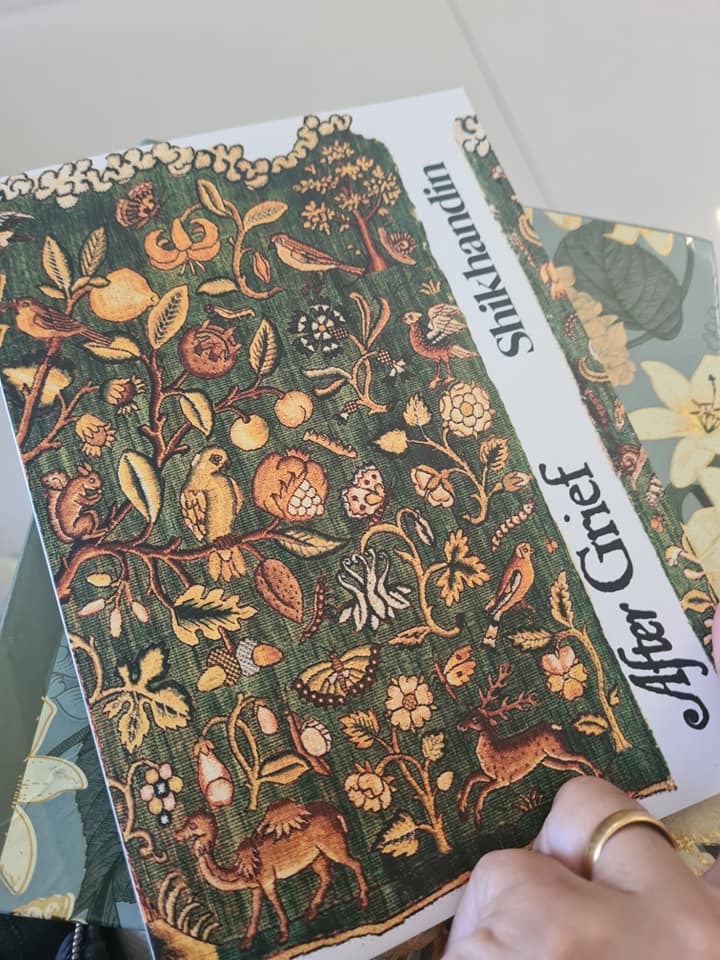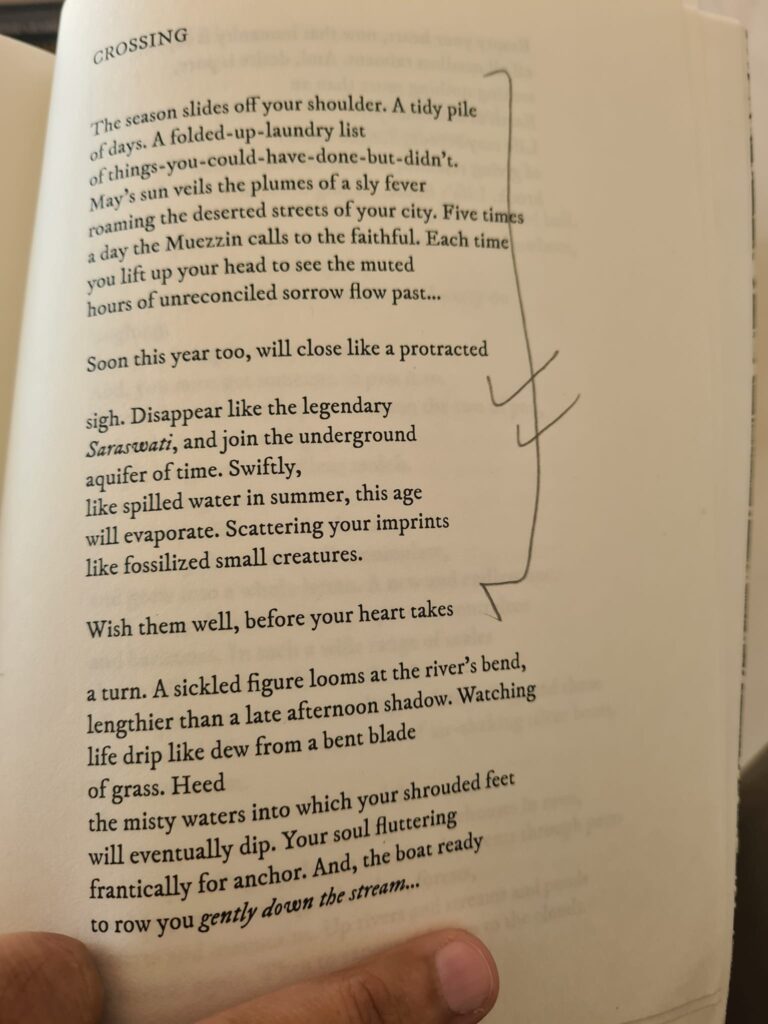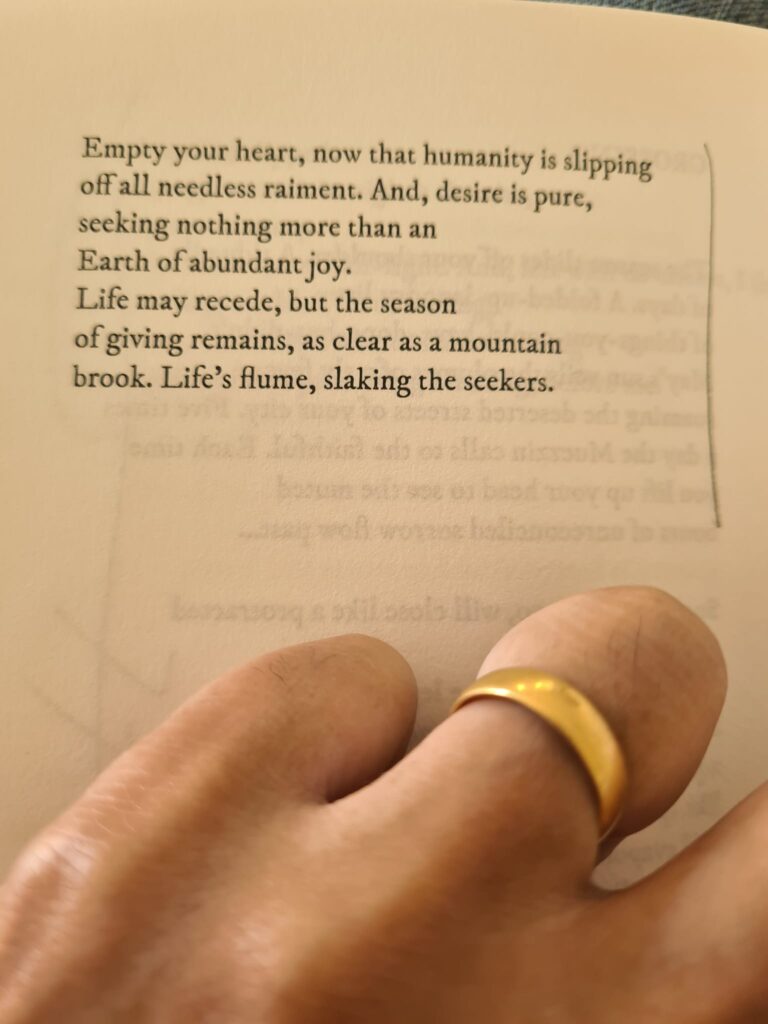Shikhandin “After Grief”

Shikhandin never ceases to amaze me. She writes. That’s it. She is unafraid of experimenting with forms that are most suitable to her expression. She is impossible to slot as a writer belonging to a specific category. Her creativity gushes forth. She commands the reader to engage. Her observation is acute. Her commentary perceptive. She is unique. Using the feminine pronoun is probably a disservice to her since she consciously chose the nom de plume to mask any gendered reading of her works. Nevertheless, I can only urge you to read her works. Her short stories, novels, and now her poetry in this exquisite volume published by Dibyajyoti Sarma, RedRiver. Sarma’s sensitivity towards Shikhandin’s poems is evident in the care with which he has laid out her poems on the page. There is something magical about the reading experience of “AfterGrief”, poetry about mourning but the period in which she revised the poems, the pandemic, the poems took on a different hue. Instead of dissecting her poems, here are a few samples:
Death is the violence of silence
tearing up your day
with an unscrambled scream
“Death”
There is a man standing on the shore, looking
past the waves, frisky, frothy and white.
He is looking towards the brightening
horizon. He is weeping.
He is weeping silently
with an oddly self-conscious sort
of abandon. He is holding on
to a plastic bag crammed with indecipherable
things and a motor cycle helmet.
His sandals feet are digging,
making washable prints on the wet sand.
He is pretending to flick off the grit from his cheeks.
“Man on the Shore”
After death’s ceremony there is numbness
After funeral’s festivity there is stillness
Afterwards, when the house has emptied, they arrive
A Long and loyal line of days, to follow you around
Twilight days to softly follow you around, mother
Sentries of quietude — a river of boundless, soundless solitude.
…
Tell me, how much of grief can a human heart
Store beneath the liquid of a tranquil face?
“After the passing of father”
In the aftermath, when fire’s rage
has cooled to skin-scorching Ash,
the wood ones of dawn will break
your heart with their absences.
No deluge can dampen the spirits
of free creatures, but fires are fierce
opponents of joy . . . .
…
She was a woman who had loved
the natural world. Speaking
in hushed tones
of the miracle of snakes birthing
in a grove. After the garden
was gone, she took
to growing cacti and succulents. A dark
green one with cylindrical shoots
still remains. Growing from one pot
into another, passing from house
to house, but never yours, until now.
“Woodnotes”
But it is the penultimate poem in this collection, “Crossing”, that is worth reading, sharing and discussing. (Photographed below.) I truly hope that one day, one day, Tishani Doshi and Shikhandin will be in conversation with each other about the crying need to be poets especially in these times. Perhaps, Ranjit Hoskote can be asked to be in conversation too. All three poets have published collections of poems in 2021 that will stand out for years to come; it is not just a witnessing, it is as if they are fulfilling their roles of poets as has been inherited from Classical times — their poems are recording history, telling stories and bordering almost on a prayer, urging people to remember their rich past and live in hope for the future, but not be passive agents in the present.

24 Nov 2021

